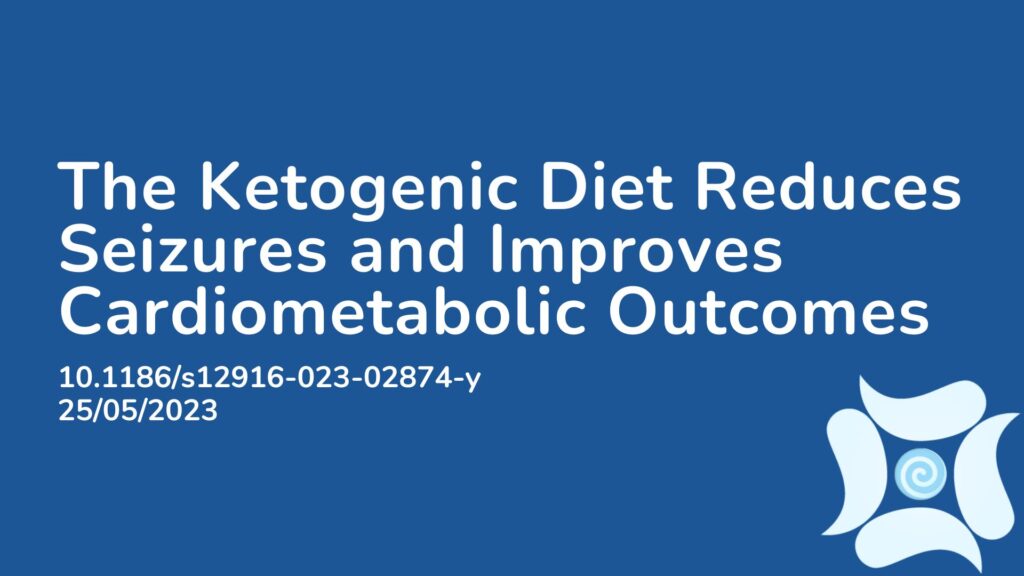Summary:
Ketogenic diets (KD) limit carbohydrate intake to less than 50 g/day while increasing protein and fat consumption. By depriving carbohydrates, the KD promotes the production of circulating ketone bodies. Ketones serve as an alternative energy source to carbohydrates, triggering weight loss and beneficial health effects by improving glycemic and lipid profiles. Additionally, KD has been recommended as a non-pharmacological treatment for medication-resistant epilepsy in both children and adults. Evidence indicates a reduction in seizure frequency and the potential for complete and sustained remission in some patients. This review aimed to analyze existing randomized-controlled trials (RCTs) investigating KD, summarized their findings, and evaluated the strength of evidence regarding the effects of KD on various health outcomes. 68 RCTs were included. High-quality evidence supported four associations, including reduced triglycerides, decreased seizure frequency, and increased low-density lipoprotein cholesterol. Moderate-quality evidence however, indicated a slight increase in cholesterol levels. In overweight or obese adults, a very low carbohydrate ketogenic diet was significantly linked to improved cardiometabolic outcomes without compromising muscle mass. In conclusion, this review highlights the beneficial associations of KDs, supported by high-quality evidence, regarding seizures and various cardiometabolic factors. This paper provides hope for people with epilepsy who are resistant to treatment and offers a safe, alternative treatment option.
Abstract:
Background: Systematic reviews and meta-analyses of randomized clinical trials (RCTs) have reported the benefits of ketogenic diets (KD) in various participants such as patients with epilepsy and adults with overweight or obesity. Nevertheless, there has been little synthesis of the strength and quality of this evidence in aggregate.
Methods: To grade the evidence from published meta-analyses of RCTs that assessed the association of KD, ketogenic low-carbohydrate high-fat diet (K-LCHF), and very low-calorie KD (VLCKD) with health outcomes, PubMed, EMBASE, Epistemonikos, and Cochrane database of systematic reviews were searched up to February 15, 2023. Meta-analyses of RCTs of KD were included. Meta-analyses were re-performed using a random-effects model. The quality of evidence per association provided in meta-analyses was rated by the GRADE (Grading of Recommendations, Assessment, Development, and Evaluations) criteria as high, moderate, low, and very low.
Results: We included 17 meta-analyses comprising 68 RCTs (median [interquartile range, IQR] sample size of 42 [20–104] participants and follow-up period of 13 [8–36] weeks) and 115 unique associations. There were 51 statistically significant associations (44%) of which four associations were supported by high-quality evidence (reduced triglyceride (n = 2), seizure frequency (n = 1) and increased low-density lipoprotein cholesterol (LDL-C) (n = 1)) and four associations supported by moderate-quality evidence (decrease in body weight, respiratory exchange ratio (RER), hemoglobin A1c, and increased total cholesterol). The remaining associations were supported by very low (26 associations) to low (17 associations) quality evidence. In overweight or obese adults, VLCKD was significantly associated with improvement in anthropometric and cardiometabolic outcomes without worsening muscle mass, LDL-C, and total cholesterol. K-LCHF was associated with reduced body weight and body fat percentage, but also reduced muscle mass in healthy participants.
Conclusions: This umbrella review found beneficial associations of KD supported by moderate to high-quality evidence on seizure and several cardiometabolic parameters. However, KD was associated with a clinically meaningful increase in LDL-C. Clinical trials with long-term follow-up are warranted to investigate whether the short-term effects of KD will translate to beneficial effects on clinical outcomes such as cardiovascular events and mortality.
Article Publication Date: 25/05/2023
DOI: 10.1186/s12916-023-02874-y




